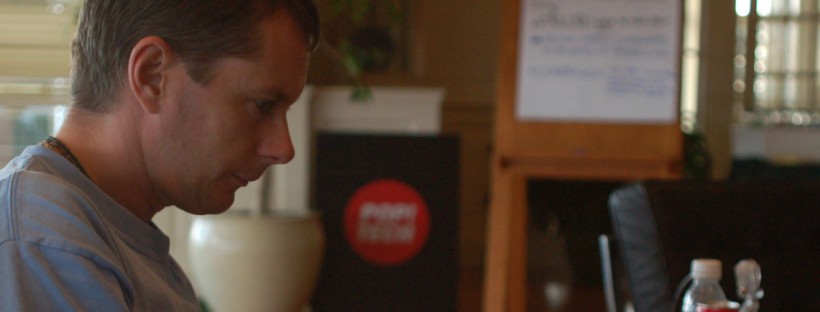One of the perks of my job is that I get to meet some of the most talented innovators and entrepreneurs from all over the world. I even get to mentor and support some of them. But they’re the exception, not the rule. Not everyone who sets out to make the world a better place is going to come up with a new, groundbreaking, innovative idea that achieves their goal. Not everyone is going to end up running their own social venture. Not everyone is going to win prizes for their efforts, and not everyone is going to have huge, global impact.
And that’s fine.
One of the most frequent questions I get asked, particularly at student events, is what young people can do to help make the world a better place. Many realise that the chances of becoming the next Muhammad Yunus are slim, and instead they look for something more achievable and realistic they can do.
During my time as a mentor with Unreasonable at Sea, I had the honour to sit on a panel with Archbishop Desmond Tutu in front of several hundred students hungry to find out how they could help make the world a better place. It was a wide-ranging conversation which you can see in full below. (The Archbishop later wrote the Foreword to my first book, which you can read about here).
The advice that I always give can be broken down into four complimentary actions. These only work if done together.
1. Take an interest. Read widely. Watch documentaries. Make an effort to meet like-minded people. Take time to understand the world, to understand the context of the problems we face as a people and a planet.
2. Empathise. Take time to understand what life is like for those less fortunate than yourself. Try to spend time with them. Travel to the places they live if possible. Be open to learning. Empathy is key. Empathy + knowledge is invaluable.
3. Pick something big. Get behind a major global campaign that addresses a major global challenge. Don’t let the enormity of the task put you off, or the fact that you may never know the impact you, individually, may have.
4. Pick something small. Get behind a local organisation addressing a local problem that you’re passionate about. Volunteer your time. Get involved. See, experience and feel the impact you’re having, and draw comfort that you’re making a difference.
Most of the innovators I get to meet didn’t come up with their ideas or solutions overnight. Many were already taking an interest, and spending time with the people they ended up helping. The most important lesson you can learn from this? If you immerse yourself, anything is possible.

